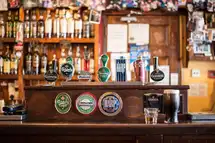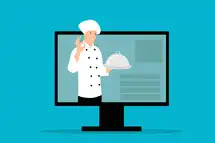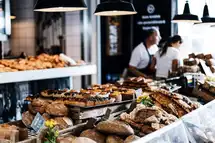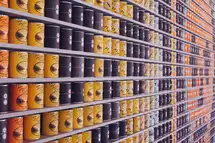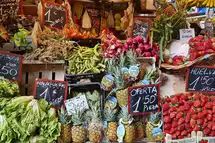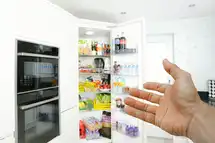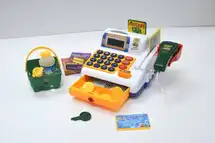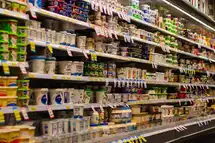What are apps for restaurant owners?
There are many different types of apps for restaurant owners, but some of the most popular ones include point-of-sale (POS) systems, inventory management apps, and customer loyalty programs. POS systems help streamline the ordering and payments process, while inventory management apps help keep track of stock levels and ensure that food is fresh and made to order. Customer loyalty programs can help encourage repeat business by offering rewards for frequent diners.
7 Essential Apps for Restaurant Owners- Digital Solutions To Grow Your Market
The Digital Transformation of the Restaurant Industry
The restaurant industry has perhaps been one of the slowest industries to adopt digitization and technological tools for its daily operations management. However, since the Covid-19 pandemic jolted the restaurant industry out of its stupor, it has now been forced to undergo a digital transformation for survival. The pandemic led to customers vanishing from restaurant floors overnight. And yet, with the effects of the outbreak now waning, restaurants are still feeling the tremors from the tectonic shift in consumer behavior. People are now used to enjoying the convenience of sitting in their living rooms, ordering food online from their favorite restaurants, and dining in the comfort of their homes. This dramatic shift in how the restaurant industry operates is now a dominant factor dictating how businesses function.
Apart from online ordering and food delivery solutions, restaurants are also turning to technology to help them improve their business operations and better meet the needs of their customers. From order management through point-of-sale systems (POS systems), to supply chain management tools and inventory management software, the restaurant industry has adopted technological solutions for most of their crucial processes. Digital transformations such as these are helping restaurants to become more efficient and provide a better experience for their customers. As diners become more comfortable with technology, we will likely see even more restaurants adopting these solutions.
How Do Digital Tools Make Restaurant Management Easier?
Digital tools can make restaurant management easier in a number of ways. Perhaps the most obvious way is that they can help with tasks such as accounting and bookkeeping. This is because digital tools can automate many of the tedious and time-consuming aspects of inventory management, accounting, order management, order tracking, supply chain management and other processes. Digital solutions for each of these tasks make them much simpler, streamlined, and quicker.
Additionally, digital tools can also help with other restaurant management needs such as marketing and customer experience management. For example, restaurant management software such as POS systems often come with bundled tools to manage social media platforms to reach out to potential customers and promote special events or discounts. Furthermore, online review sites can be monitored so that negative reviews are addressed quickly and effectively. In short, there are many different ways in which digital tools can make restaurant management easier; it really just depends on how they are used.
Many restaurant owners are struggling to find ways to digitally transform their operations.
The competition is getting fiercer by the day, and it's hard to stay relevant in a fast-changing world.
7 Essential Restaurant Apps - No. 1 Inventory Management
Inventory Control and inventory management are some of the key processes in restaurant management that help save food costs and drive profits. Without proper control of inventory, restaurants can run into all sorts of problems, from cost overruns to disruptions in service. That's why an effective inventory management system is essential for any restaurant that wants to stay in business.
There are a number of different ways to manage restaurant inventory, but the most effective systems make use of technology. Inventory management programs and apps help restaurateurs keep track of their inventory in real time and make sure that they're always well-stocked. The right inventory management system can save a restaurant a lot of money and hassle in the long run. It's worth taking the time to find the right solution for your business.
No. 2 Point of Sale
Point-of-sale (POS) systems are a combination of hardware and software solutions that are used together to process, record and track sales transactions. A Pos system can be used in a variety of settings, including retail stores, restaurants, and businesses that offer services. In a restaurant business, POS systems are typically used to track inventory levels, process orders and payments, and generate sales reports. Cloud based POS systems can also be used for table management and to manage multiple restaurant outlets.
POS systems can also be used to run restaurant loyalty programs, gift cards, marketing efforts and other initiatives to improve customer experience. For restaurant managers, an integrated POS system is an essential tool that helps save on labor cost and also helps efficiently manage a business by reducing the scope of error.
No. 3 Employee Management Software

There are a few reasons you might need employee management software. You may need an easier method of time tracking and attendance management for each of your employees. Or you may employ remote workers and need a way to manage their work hours. Whatever the reason, employee management software can make your life a lot easier. Some employee management software solutions include features such as performance tracking, time clock and payroll processing. Others are more basic and just include features like employee contact information and employee scheduling. No matter what your needs are, make sure you find the Best Employee management software that suits all your specific needs as this is one tool that will help you reduce your labor costs significantly.
Restaurant owners may feel they are behind the times and struggling to keep up with technology.
This article provides a complete list of apps that can help restaurant owners digitally transform their business and stay ahead of the competition.
No. 4 Customer Experience Management
Customer experience management is the practice of designing and responding to customer interactions to increase customer satisfaction, loyalty and advocacy. The ultimate goal of customer experience management is to create positive customer experiences that result in customers remaining loyal to your brand. And for this particular purpose, there are a number of Customer Relationship Management (CRM) tools in the market that boost customer relations significantly.
CRM tools include both, the proactive design of customer touch-points and the reactive management of customer interactions. In order to be effective, CRM requires an understanding of customer behavior at each stage of the customer journey, from brand awareness to purchase and delight. Additionally, CRM activities must be coordinated across departments in order to provide a consistent experience for customers. A CRM system helps food businesses keep track of their customers and their interactions. This information is then used to improve customer service, target marketing efforts and build better relationships with patrons. In order to be successful, a CRM system must be integrated into all aspects of the business, from sales and marketing to customer service and support.
No. 5 Online Ordering and Food Delivery App
While the pandemic has been hard on many businesses, it has come as a blessing for online ordering and food delivery apps. People are cooking at home more to save money and stay safe, and what would earlier be 'dining out' days are turning to 'online ordering and food delivery' days. Online ordering has brought an immense amount of convenience that people are not about to let go of anytime soon. And as restaurant owners who wish to stay relevant in the restaurant industry, this has become a must-have tool.
It offers a wide selection of restaurants, fast delivery time, and convenient features like order tracking and discounts for frequent customers. Whether diners are looking for a specific type of food or cuisine or want to find a new restaurant to try out, online ordering and food delivery apps have made it easy to find exactly what they are looking for and at discounted rates compared to dine-in prices.
No. 6 Restaurant Table Management App
Whether you are a small business owner or someone running a large chain of restaurants, smooth table management can be a major headache on busy days. It needn't anymore, thanks to efficient table management tools offered by restaurant management software solutions such as POS systems. With these tools, restaurant managers can keep track of tables, customers and orders in real time. You can use it to manage your reservations, seating arrangements, and wait-list. It also allows you to send alerts to customers when their food is ready. In addition, the app provides valuable insights on customer behavior and order patterns.
No. 7 Food Safety Management Software
Food Safety is one of the primary areas of concern for restaurant owners and this is one aspect where you cannot afford to slip up. Food safety violations can lead to penalties and suspension of food licenses, and so efficient food safety management is something you must not compromise on. And a food safety management software will help you make sure all your food processing stages are carried out in adherence to strict guidelines.
Food safety management software gives you the ability to manage and monitor your food safety processes. The software provides you with a range of tools to help you track and control your food safety steps, including a food safety plan builder. This helps businesses create and customize a food safety plan that meets the specific needs of their restaurant. With food safety management software, you can also keep track of your suppliers and their quality management systems.
There are so many restaurant apps in the market, it's hard to know which to go with.
This article lists the essential apps to consider if you want to adopt digital solutions.


